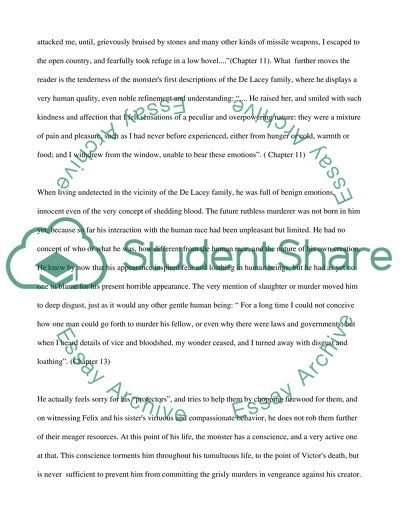Cite this document
(“The Monster in the Novel by Mary Shelley Essay Example | Topics and Well Written Essays - 1000 words”, n.d.)
The Monster in the Novel by Mary Shelley Essay Example | Topics and Well Written Essays - 1000 words. Retrieved from https://studentshare.org/literature/1531008-frankenstein-essay
The Monster in the Novel by Mary Shelley Essay Example | Topics and Well Written Essays - 1000 words. Retrieved from https://studentshare.org/literature/1531008-frankenstein-essay
(The Monster in the Novel by Mary Shelley Essay Example | Topics and Well Written Essays - 1000 Words)
The Monster in the Novel by Mary Shelley Essay Example | Topics and Well Written Essays - 1000 Words. https://studentshare.org/literature/1531008-frankenstein-essay.
The Monster in the Novel by Mary Shelley Essay Example | Topics and Well Written Essays - 1000 Words. https://studentshare.org/literature/1531008-frankenstein-essay.
“The Monster in the Novel by Mary Shelley Essay Example | Topics and Well Written Essays - 1000 Words”, n.d. https://studentshare.org/literature/1531008-frankenstein-essay.


